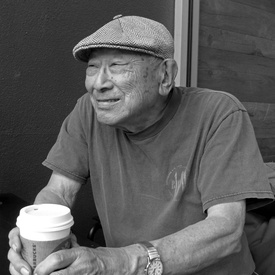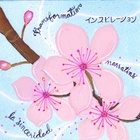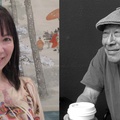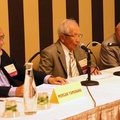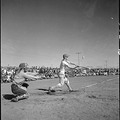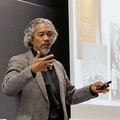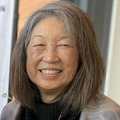As we come to our 4th December and third anniversary of Nikkei Uncovered: a poetry column, it seemed very fitting to pay tribute to the recently departed poet, Hiroshi Kashiwagi. A beloved community member and writer for many generations, Hiroshi was the inaugural poet featured (alongside Amy Uyematsu) when we began the column. I have fond memories of hearing Mr. Kashiwagi read his poetry aloud and I was always inspired by his candor, slightly mischievous smile, and of course, his poetry. With a brief note from his son, artist Soji Kashiwagi, we have five poems here—selected by Soji—as we pay homage to a beautiful soul.
“I selected these poems because they represent different times in my father’s life, and his different views on life, and love and living. They are deeply personal and show us his humanity and who he was.”
Enjoy.
—traci kato-kiriyama
* * * * *
Born in Sacramento in 1922, the late writer and actor Hiroshi Kashiwagi was incarcerated at Tule Lake Segregation Center during World War II. His publications include Swimming in the American: A Memoir and Selected Writings, winner of American Book Award, 2005; Shoe Box Plays; Ocean Beach: Poems; and Starting from Loomis and Other Stories. (1922-2019)
Haircut
Papa
you used to
cut my hair
rice bowl style
carving
big ears for
juicy spitball
targets
Papa
you used to
work your mouth
in time to the
hand clipper
you were a
happy craftsman
as long as I sat
perfectly still
but if I so much as
winced
when you
pulled my hair
you were offended
you became
impatient
you lost your craft
you pulled more hair
I suffered
the haircut
suffered
when I cried
ouch
you even
bopped me
on the head
one bright
Sunday morning
a shadow crossed
the light
a tall hakujin
grinned down at us
hello there
mind if I
take a picture
for the
Sacramento Bee
Jap hating
yellow paper
Papa you snatched the
newspaper
pinned around me
scattering hair
in several
directions
get hell out
you roared
the tall hakujin
fled
the camera
on a strap
bouncing
on his back
you were
agitated
of course
but Papa
that was the
worst haircut
you ever gave me
for two weeks
I had to wear
a stocking cap
in and out
of the
classroom
but Papa
it’s the haircut
I most associated
Witih you
Remembers
the razor blade
remembers
Mr. Stevens the druggist
across the street
I watched him
come in the morning
overcoat and hat
and leave at night
after shaking the door
all day he dispensed
drugs and sodas
love, hate, shit
what’s the difference
while the bus waited
to take us to
concentration camp
he sneered and
wouldn’t sell me
the razor blade
remembers
Issei and Nisei
Now that my hair is graying,
Mama, we can sit by the window
and chat if you like;
or we can just sit,
quietly and serenely,
two people with graying hair
On Your Wedding
Love
the meaning
of
is forever
how
the sun
shines
love
the meaning
of
is
forever
Mortality
Hoshi is fourteen, nearly fifteen
I suppose that’s old for a dog
I notice certain changes
she is more cautious and hesitant
going down the stairs
and her morning walks are more circumscribed
only after a bath does she show any energy
running around as she used to
I guess to shake the water off her coat
she doesn’t always hear my calls
but her sight and smell are good
and her appetite is healthy
still I watch her closely
thinking of mortality
hers and mine
* The poems above were published in Ocean Beach in 2010 and are copyrighted by Hiroshi Kashiwagi.
© 2010 Hiroshi Kashiwagi



